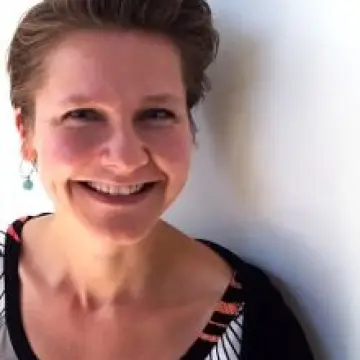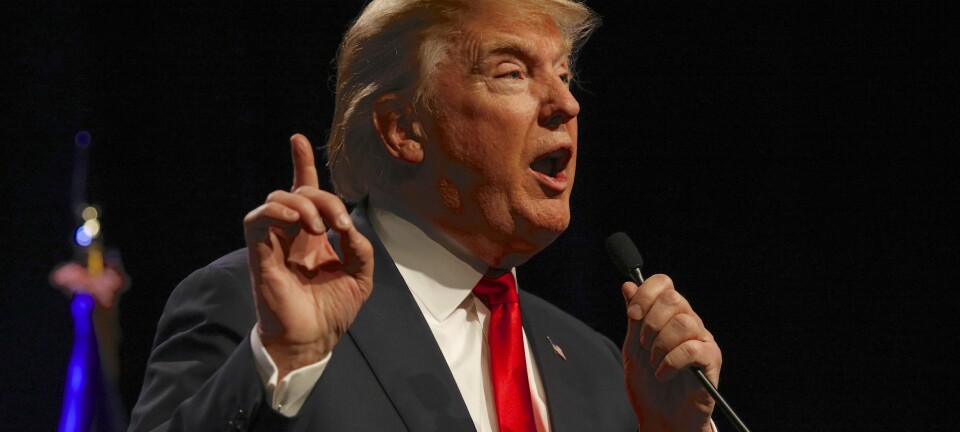Researchers' Zone:

Conspiracy theories in the age of corona: How they flourish, and why they are a problem
COMMENT: The uncertainty of coronavirus leaves room for alternative explanations, but conspiracy theories’ mistrust of experts and authorities could potentially weaken democracy.
On social media platforms such as Facebook or YouTube, many conspiracy theories are currently circulating about the corona virus.
One of the most shared theories is that the virus is a biological weapon created in Chinese laboratories with the aim of keeping the population numbers down.
Another popular theory is that the authorities use viruses as a cover to get us all vaccinated with a nanochip so we can be monitored and controlled.
Bill Gates appears in both explanations as the looming figure who has financed the whole deception.
Conspiracy theories thrive in posts on Weibo, Twitter and Facebook, as well as in a number of YouTube videos, while on the video app TikTok, rumours have been circulating that the virus was invented by the Chinese Government.
Common to all currently circulating conspiracy theories is that they reject official explanations given by authorities, formulate an alternative truth as to why the pandemic is occurring right now and explain who is actually behind the outbreak of the disease.
When looking at the current corona conspiracy theories, it is natural to try to understand why conspiracy theories arise and who believes in them and shares them.
This includes looking at how the alternative explanations are linked to trust and distrust, what relationship the conspiracy theories have to science and what challenges they pose to a democratic society.
These questions are the focus of this article.
Nothing new under the sun
Many of the recent theories about coronavirus are, in several ways, reminiscent of conspiracy theories we have seen in the past during major disease outbreaks.
That experts or authorities such as the WHO should deliberately lie about the cause of diseases or about vaccines is a well-known theme of conspiracy literature.
One of the most widespread theories is the idea that HIV/AIDS was created in Western laboratories with the purpose of limiting the population of sub-Saharan Africa.
During the Zika virus outbreak in Central and South America in 2015, a theory emerged that genetically modified crops created in laboratories were likely the cause of the disease, which is in fact transmitted by mosquitoes and can cause major birth defects.
From a historical perspective, we have probably looked for someone to blame in every epidemic.
In the Middle Ages, plague epidemics were often blamed on Jews or lepers, which on several occasions led to attacks and forced displacements.
Lack of firm knowledge leaves room for alternative explanations
There is a close correlation between conspiracy theories and societal conflicts, and during a crisis like the present one, the tendency to resort to conspiracy theory narratives and explanations increases.
Conspiracy theories can be seen as a way of dealing with a crisis by providing a simple explanation for upheavals and assigning blame.
There are several national and global examples of corona conspiracy theories merging with other contemporary conspiracy theories that express a general scepticism towards experts and health authorities.
For example, several theories have emerged that link corona to the roll-out of the 5G network and the fear of surveillance.
The connection is obvious: in both cases, we have a relatively new technology and a new disease where researchers are still trying to learn about health and social consequences.
In other words, there is scope for a number of alternative explanations and for political and strategic influence concerning how we as a society deal with these new phenomena.
The need to make sense and find a scapegoat
Despite often complex explanations and sequences of events, the theories act as comforting narratives that identify a concrete enemy that can be taken on.
Research shows that conspiracy theories are becoming more widespread, that they are not limited to a few paranoid individuals, and that they appear to thrive on both political wings.
For example, the British social psychologist Karen Douglas has been investigating whether there is a particular conspiracy mindset.
Some of the factors she points to for a person to become inclined to believe in conspiracy theories include feelings of insecurity and fear, particularly linked to a sense of having little control over one's socio-economic conditions, as well as 'anomie', i.e., a general feeling of alienation or normlessness in relation to society's core institutions.
She also points out 'epistemic' (knowledge-related) reasons in terms of a strong need to maintain a stable, reliable and secure understanding of the world.
Here we can add that people who are already sceptical of governments, authorities and experts, and who tend to look for simple solutions to complex political problems, are attracted to conspiracy theories.
These factors may explain why conspiracy theories particularly flourish during crises and in circumstances where people feel unsafe financially or in terms of health or safety.
In this video, the BBC reviews some of the most widespread conspiracy theories (Source: BBC/YouTube)
Distrust of authorities
The government, politicians and so-called 'experts' all have a stamp of authority and provide the official explanation of phenomena and events in society.
As alternative explanations, conspiracy theories represent a distrust of these authorities and experts.
When conspiracy theories form part of a critique of power, such as theories that 9/11 was an 'inside job' orchestrated by the US authorities themselves, they become preoccupied with delegitimising experts and those in power and questioning their knowledge and power.
One can argue that distrust has arisen because some conspiracy theories have turned out to be true and because there are plenty of examples of corrupt authorities that have lied to the public.
Classic examples are the Watergate scandal, NSA wiretaps, secret nuclear tests or the lie about Iraq's weapons of mass destruction, all of which have created a lack of trust in the relationship between the people and those in power.
Here on Videnskab.dk's platform Forskerzonen, Gert Tinggaard Svendsen has pointed out that countries with a high level of trust in the authorities and in other people are generally better equipped to cope with crises like the current one.
This is probably one of the reasons why there are relatively fewer conspiracy theories and less misinformation circulating in Denmark, according to Svendsen.
But uncovering the abuse of knowledge and power by public authorities weakens their credibility and heightens people's suspicion that the 'elite' is hiding something from ordinary people.
Increasingly, this can also be seen in high-trust countries such as Denmark in debates about the harmful effects of vaccines or posts on social media that the 5G network is damaging to health and can be used for surveillance.
Uses alternative knowledge and facts
Conspiracy theories typically have an ambiguous relationship to science:
- On the one hand, with their search for truth and demand for scientific evidence, they actually share many common features with science.
- On the other hand, they reject official science and available knowledge in the field.
This is related to their assumption that if the authorities and institutions of knowledge deliberately suppress knowledge, it is necessary to seek alternative channels of knowledge – what the American political scientist Michael Barkun calls 'stigmatized' knowledge.
That is, knowledge that is not accepted by experts and does not fit into the official explanation.
Reasoning in conspiracy theories is thus often based on alternative data and specific pieces of information and that are not normally given any significance — for example, how many Jews were present in the World Trade Center on September 11th, 2001, or the fact that coronavirus has arisen at the very time when a number of countries are in the process of deploying 5G.
Conspiracy theories can rarely be disproved
Many conspiracy theories use alternative arguments where potentially conflicting evidence is not only ignored but deemed either false or part of the plot, thus acting as further proof that the theory is true.
Hypotheses in conspiracy theories cannot be falsified or disproved, unlike in classical science, since the conspiracy theorist will always be able to find new arguments or evidence that confirm the theory.
Thus, the evidence uses circular arguments and a highly selective use of data to demonstrate intentionality and causality, thus creating a link between events and people.
Moreover, the circular arguments often take the form of an ad-hominem attack, as in the current 5G discussions, where scientists are accused of being bought off by the telecoms industry to hide the truth about the potentially harmful effects of mobile radiation.
The margin of uncertainty and absence of definitive evidence that often characterises science is used by the conspiracy theorist as proof that either something is being hidden or official science has clearly failed, and we need to search for alternative data.
Can weaken trust in democracy
The hallmark of conspiracy theories is that all important phenomena or events are perceived as the result of deliberate, malicious acts initiated by certain actors who hide their motives.
Therefore, conspiracy theories take on the character of a monological belief system, or a closed worldview, with a strong selective 'bias' where all information that does not support that particular view is shut out.
Conspiracy theories can amplify distrust in others and in society's institutions, including politicians, experts and the media.
Several researchers have found a link between belief in conspiracy theories and a lack of belief in the democratic system, such as when people do not vote in general elections.
The relationship between conspiracy theories and political extremism is complex. In some cases, the conspiracy theory may form part of a legitimisation and explanation strategy for individuals and groups with extreme political views.
While there is no direct causal link between conspiracy theories, extremism and violence, several extremism researchers point out that conspiracy theories can be used to reinforce an extremist and dualistic worldview in which enemy imagery is dominant.
Difference between genuine critique of power and conspiracy theories
Many will probably argue that one may well distrust those in power and argue against the handling of the pandemic by the authorities without thinking that coronavirus is a cover up for controlling the population through a vaccine with a built-in surveillance chip.
Many conspiracy theories question and critique power, which is an important democratic weapon in the fight against an increasingly opaque political system in which more and more important decisions are made behind closed doors.
The point where belief in conspiracy theories tips over and becomes problematic is when mistrust and distrust of the authorities begin to influence the health or political choices we make.
In Africa, belief in conspiracy theories about HIV/AIDS has been a direct hindrance in combating the disease, and researchers estimate that more than 300,000 people in South Africa alone have needlessly died as a result of rejecting medicines.
This is also the case with coronavirus, where a lot of false health advice about protective measures has been circulating that is often rooted in conspiracy theories that claim someone is deliberately hiding knowledge about the disease.
Conspiracy theories are and always have been part of human culture, and they will probably continue to emerge and find new followers.
Crises such as the present one, in particular, are fertile ground for countless misconceptions and alternative theories about who is actually behind the outbreak of the disease.
Translated by Stuart Pethick, e-sp.dk translation services. Read this article in Danish at Videnskab.dk's Forskerzonen.
References
Rikke Alberg Peters' Profile (HistorieLab)
'Den skjulte sandhed', Forlaget KLIM, 2018
'Conspiracy Theories as Stigmatized Knowledge', Diogenes (2016), DOI: 10.1177/0392192116669288
'Communities of Violence', Princeton University Press (2015)
———











